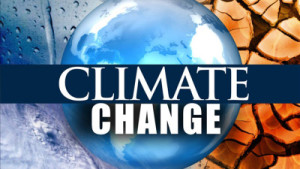
By editor - 20 February, 2015
 The Government has a “significant opportunity” to give a lead on climate change and must ensure its policies are coherent on the issue, Social Justice Ireland has said.
The Government has a “significant opportunity” to give a lead on climate change and must ensure its policies are coherent on the issue, Social Justice Ireland has said.
At a seminar on climate justice and policy coherence on Thursday, policy practitioners warned that the Government must plan for coherent, sustainable long-term development, or rue the drastic consequences of global climate change.
“Our current consumption behaviour cannot be sustained without exceeding the bio-physical limits of the planet,” Dara Lynott, Deputy Director-General of the Environmental Protection Agency (EPA) said.
“This means we have to rethink, and redesign, what we mean by social and economic ‘prosperity’”.
“Climate change is the greatest challenge facing our planet,” according to Dr Seán Healy of Social Justice Ireland, which organised the event.
“It places additional pressure on Government to ensure that its policies in other areas do not work against climate justice. Failing to take appropriate actions and measures on climate change and carbon emissions now mean that Ireland’s economy and society will bear a far greater cost in the future”.
Lorna Gold, Head of Policy and Advocacy with Trócaire, discussed the links between climate justice and international development.
Her paper examined the impacts of climate change and the responsibility of the international community to ensure a global shift in policy.
Michelle Murphy, Research and Policy Analyst with Social Justice Ireland, said the Climate Action and Low Carbon Development Bill 2015, now before Dáil Éireann after its publication in January, offers “a significant opportunity” to provide long-term leadership in this area.
She urged legislators to set targets for emissions reductions, to include the principle of ‘climate justice’ and to focus on coherent planning, as well as cost-effectiveness, when amending the Bill.
Social Justice Ireland hosted the seminar to contribute to a “conversation” about climate justice.
To mark the UN’s World Day of Social Justice on 20 February Dr Healy called on Government to:
– Plan a detailed roadmap for development of a low carbon, sustainable economy as soon as the Bill is implemented;
– Include sectoral emissions targets for agriculture, transport, and other major polluters. Agriculture accounted for almost a third of total emissions in 2013 and faces major difficulties in meeting future targets;
– Devise ‘shadow’ national accounts to measure the impact of environment depletion, pollution and CO2 emissions on Ireland’s economy.
“Government – and other key players, such as farmers and industry – must set out how they propose to protect the environment in a coherent manner, whilst pursuing strategies that boost growth and employment,” Dr Healy said.
“Without a shift in attitudes and strong national leadership Ireland will remain unprepared for upcoming challenges related to climate change.”
For more information on climate justice issues see: United Nations Environment Programme (UNEP) report and www.socialjustice.ie